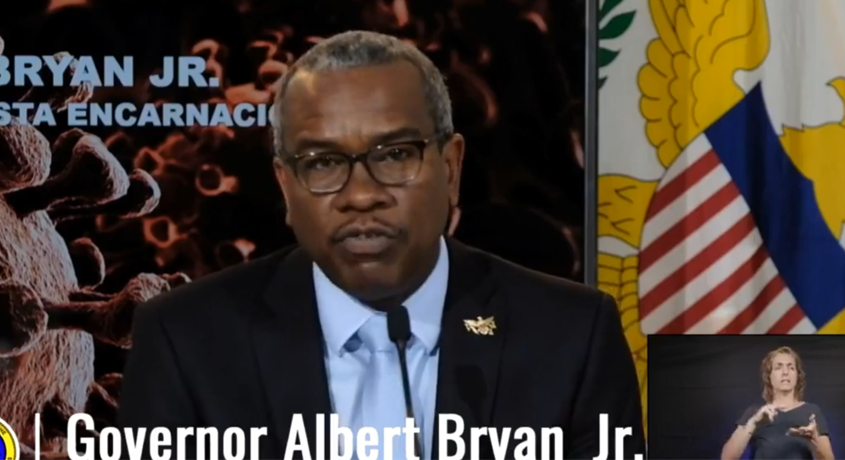CHRISTIANSTED — Governor Albert Bryan, Jr. on Thursday convened the third meeting of his Administration of the Comprehensive Economic Development Strategy Committee (CEDS) to talk about what the post-COVID-19 economy will look like in the U.S. Virgin Islands and how the territory can best adapt to the financial turmoil the virus has created.
CEDS comprises representatives of the business community, the Tourism sector and non-profits, members of Bryan’s Cabinet and other community leaders who meet to talk strategy about the territory’s short-term, mid-term and long-term economic issues and find solutions.
The meeting comes as the territory enters Bryan’s “Open Doors” phase of the Virgin Islands’ recovery from the COVID-19 virus and in the face of Fiscal Year 2020 revenues coming in about $150 million lower than expected.
Bryan stressed two key points that he said are crucial to the territory righting itself economically after the COVID-19 virus put a halt to the territory’s recovery from the 2017 hurricanes.
One primary foundation of rapid economic recovery is to react immediately and move quickly, moving forward with a number of revenue-generating legislative initiatives the Governor’s Office has sent to the Legislature, the Governor said.
Equally important is getting the buy-in and advocacy of business leaders to make the public aware of the various economic initiatives and how they will bolster the Territory’s financial future, Governor Bryan said.
At Thursday’s CEDS meeting, Haldane Davies, vice president for business development and innovation at the University of the Virgin Islands, gave a presentation about the economic impact of disasters on the Virgin Islands and strategies going forward to mitigate it.
Davies provided an overview of the economic impact of disasters from 2015 to 2019, noting that disasters are happening with more frequency and greater economic impact, before talking about what constitutes economic resilience and how to achieve it.
According to Davies, the foundation of economic resilience encompasses:
· Research and knowledge building
· Planning integration
· Governance structures
· Financing resources and programs
· Infrastructure strategies and programs
· Procurement strategies
· Business continuity and risk management
· Workforce support programs
· Economic diversification
· Counseling and technical assistance programs
· Communications systems and programs
Davies presented a number of ways the territory can achieve economic resilience, such as diversifying the economy, collaborating with national healthcare systems, expanding financial services, investing in the human infrastructure and workforce development, and establishing food security.
He finished the presentation offering a long list of specific possible priority projects studies and assignments, including some which already are in process, such as revitalizing Paul E. Joseph Stadium, expanding water-side and land-side cargo facilities, redevelopment of schools territory-wide, implementing the Enterprise Zones Redevelopment plans for Christiansted, Frederiksted and Charlotte Amalie and diversifying the Tourism product.
The CEDS Committee is next scheduled to convene in the fall.
TO READ MORE:

